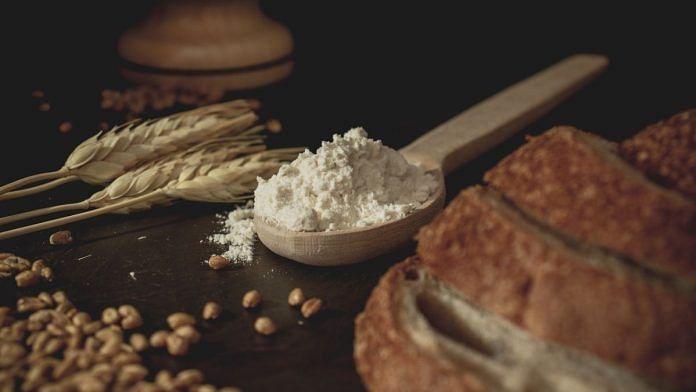In my 13 years as a dermatologist, one thing I always tell my patients is that skin, being the largest organ, will always reflect what we put in our bodies. Diet plays a large part in this and in recent years gluten has been the buzzword. But is a gluten-free diet the magical fix to all skin problems? The answer is not so simple.
What is gluten?
Before cutting something out of your diet, it’s always good to know what it is. Gluten is a group of proteins found in flour, wheat, barley, etc. It acts as a binding agent, giving dough its elasticity and helping it rise. It consists of two main proteins: gliadin and glutenin.
It’s commonly found in bread, pasta, cereal, cakes, cookies, and beer. It is also used in various processed foods, sauces, and condiments as a thickener or filler.
Gluten acts like a prebiotic. According to the Harvard School of Public Health, gluten contains a prebiotic carbohydrate, arabinoxylan oligosaccharide, which feeds the healthy bacteria in our gut.
While most people can consume gluten without any issues, it can affect the skin of individuals who have certain conditions, most notably celiac disease or non-celiac gluten sensitivity. In these cases, consuming gluten can trigger an immune response that leads to inflammation and various symptoms throughout the body, including the skin.
“I often come across patients who come to me with complaints related to the digestive system but have an underlying skin ailment” says Dr Ashwini Kumar Setya, a Delhi-based gastroenterologist.
Also read: Do you have a sweet tooth? This is what sugar does to your skin
Will a gluten-free diet help?
The following are a few common skin ailments that are associated with gluten. But not all of them can be scientifically linked and thus a gluten-free diet may not always help.
Dermatitis Herpetiformis (DH): This is a chronic skin condition characterised by itchy, blistering skin rashes. Dermatitis Hepretiformis is closely linked to celiac disease (affecting 10 per cent of people with celiac disease), and the rash is caused by the immune system’s reaction to gluten. While it is still not understood exactly why it happens, it is the deposition of immunoglobulin A (IgA) in the skin that results in inflammatory lesions. While steroids such as dapsone can help an acute lesion formation, the only treatment option is a strict gluten-free diet.
Eczema: Eczema is a skin condition that causes dry and itchy patches of skin. While not directly caused by gluten, some people with gluten sensitivity or celiac disease may find that eliminating gluten from their diet helps improve eczema symptoms. While there is a need for a more detailed dive into the connection between gluten and eczema, one of the reasons why these two crop up in the same sentence is wheat. Wheat, which is a primary trigger for eczema flare-ups, contains gluten. This often leads people to conflate the two and adopt a gluten-free diet.
Psoriasis: Psoriasis is a skin disease that causes a rash with itchy, scaly patches. Some individuals with psoriasis may find that their symptoms improve when they avoid gluten. In fact, according to the National Psoriasis Foundation, up to 25 per cent of people with psoriasis have a sensitivity to gluten—leading them to adopt a gluten-free lifestyle.
Acne: As of 2024, there is no scientific research that shows a legitimate connection between acne and gluten consumption. Any claims that a gluten-free diet will help combat acne are anecdotal at best and should not be considered the rule.
Also read: Intermittent fasting is great for your skin. Does it mean you can eat anything?
How to reduce food sensitivity:
While certain ailments such as celiac disease completely rule out gluten from one’s diet, there are certain ways one can reduce food sensitivity and take care of your gut health.
- White rice over brown rice: While the health benefits of brown rice have been exalted, brown rice also contains more arsenic than white rice, which increases food sensitivity. It is best to balance both types of rice in your everyday diet
- Improve your gut health: Eating probiotics daily and consuming fermented food like kombucha, kimchi, Yakult, and homemade curd helps maintain your gut health.
- Elimination diet: If certain foods are wreaking havoc on your stomach, remove them from your diet completely and reintroduce them in small amounts to see how your body adjusts to them.
It’s essential to note that not everyone with celiac disease or gluten sensitivity will experience skin problems, and the severity of symptoms can vary greatly from person to person. If you suspect that gluten is affecting your skin, it’s best to consult with a healthcare professional for proper diagnosis and guidance on managing your condition.
Dr Deepali Bhardwaj is a dermatologist, anti-allergy specialist, laser surgeon and internationally trained aesthetician. She tweets @dermatdoc. Views are personal.
(Edited by Theres Sudeep)



